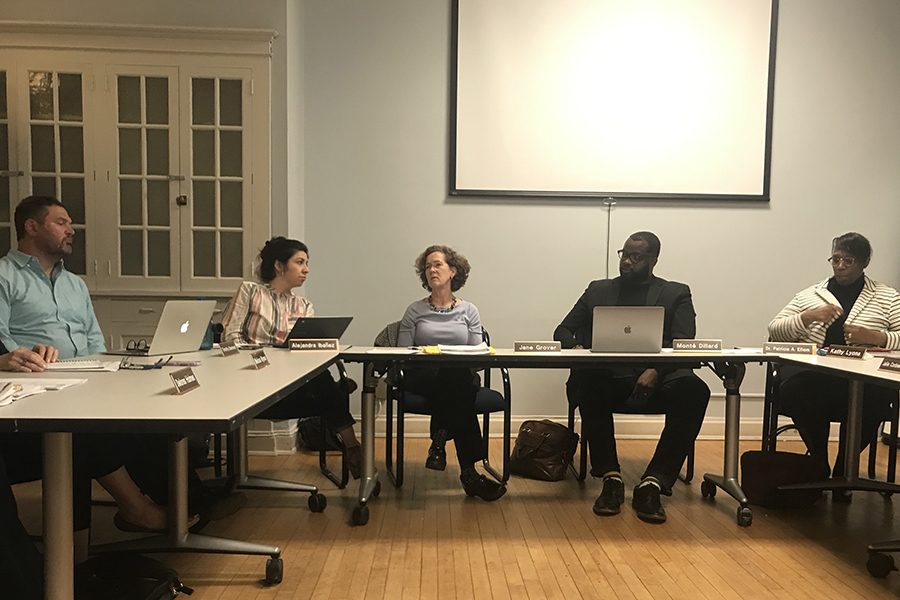Equity and Empowerment Commission discusses racial disparity and reparations
Andrea Bian/Daily Senior Staffer
The Evanston Equity and Empowerment Commission discusses a potential “Solutions Fund” at a Thursday meeting.
June 22, 2019
The Evanston Equity and Empowerment Commission established a subcommittee on Thursday to begin work on possible forms of reparations to black residents.
Proposed by Ald. Robin Rue Simmons (5th), the subcommittee’s main purpose is to increase home ownership among black residents. Simmons said in her proposal that the committee could consider options for a “Solutions Fund,” or a dedicated amount of revenue to go towards closing the wealth and opportunity gap for African-American residents. Specifically, Simmons proposed the fund support residents through economic developments particular to their community.
“Black people are leaving Evanston because there is not enough opportunity,” Simmons said. “We have barriers to have the same economic vitality as our white neighbors.”
Simmons focused on the economic damages caused by discrimination, citing redlining — the discriminatory practice of denying housing loans to mainly black people — and prejudicial Evanston zoning practices that have systemically discriminated black people in the housing market. She also mentioned a decreased homeownership rate among black Evanston residents compared to the 1950s.
Simmons suggested the additional revenue from a recently increased Real Estate Transfer Tax or proceeds from the selling of any city property as potential ways to contribute to the Solutions Fund.
At last month’s Equity and Empowerment Commission meeting, the Commission unanimously voted to sponsor Undesign the Redline, a traveling exhibit displaying the present issues in communities today due to the creation of redlining.
Jane Grover, the commission chair, said the subcommittee would be staffed by Patricia Efiom, the city’s equity and empowerment coordinator, and Simmons said she would help lead the subcommittee. Commissioners Monté Dillard, Grover, Delores Holmes, and Alejandra Ibañez also expressed an interest in joining the subcommittee.
Dillard emphasized the importance of having the necessary financial information and guidance in the receiving of reparations.
“We need compensation and the information so that when we get the compensation, we can maximize it,” Dillard said. “You give me a house, but how do I understand how taxes work?”
Additionally, Ald. Cecily Fleming (9th) presented a resolution, “Commitment to End Structural Racism and Achieve Racial Equity,” which was passed June 10.
By passing the resolution, the City Council agreed to participate in racial equity training, which Fleming said will occur in August, and to join the Government Alliance on Race & Equity (GARE), a national network of both local and regional governments that works to achieve racial equity and increase opportunity.
Fleming and the committee discussed the forming of a potential equity framework. Grover said the commission had already been working on such a structure, but that the city had been reviewing their social services — the framework was not finalized because they wanted to see how racial equity factored into those services, she said.
Fleming stressed the importance of an equity framework in the future.
“The reason racial equity is so important is when you look across the board, by disability, by income and everything else, African Americans tend to be at the bottom,” Fleming said. “It’s important that you focus on race, because as you lift up who is on the bottom, everyone is lifted up.”
Email: [email protected]
Twitter: @andreabian_


